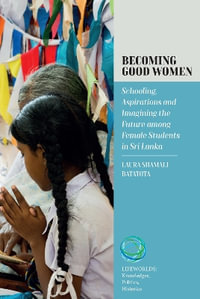From cultural studies, sociology, media studies, gender studies and elsewhere there has been a spate of books recently which have attempted to characterize the state of modernity. Many of these have also argued that what is required is ethnographic work to determine how far these supposed trends actually apply to a given population. This book explicitly accepts this challenge. It starts by summarizing some debates on modernity and then argues that the Carribean island of Trinidad is particularly apt for such a study, given the origins of its population in slavery and indentured labour, both forms of extreme social rupture, and the subsequent development of creolisation, the transnational family and economic dependency.
The particular focus of this book is on mass consumption and the way goods and imported images such as the soap opera have been used to express and develop a number of key contradictions of modernity. Trinidad also provides considerable material for qualifying and disputing many of the generalisations made in the literature of modernity and postmodernism, for example, the use of concepts such as superficiality, individualism and style.
Industry Reviews
'Summarising [the book] does not do justice to the richness of detail and humour Miller brings to an ethnography which touches on topics such as the truth of the bacchanal versus the facade of respectability; aphrodisiacs and deputies; individual wining as opposed to paired grinding.' The Sunday Express 'In this unique combination of approaches, he charts a new course for Caribbean studies and offers an enticing addition as well to the rapidly expanding literature theorizing the global conditions of (post)modernity ... promises to answer many of the calls within anthropology and cultural studies for rich ethnography to fill out the proliferation of seductive but thin descriptions of globalization and transnational flows of capital, labor, media/information, and culture.' New West Indian Guide "Amidst a mass of ethnographic detail and fine insight, the discussion dances in a lively way from heady overarching theoretical elaborations to micro-level glances at such things as toothpaste brands and upholstery texture, never missing, it seems, an intellectual beat. (...) Miller's argument is deceptively straightforward and lucid in it s unfolding, but also multi-stranded and complex. (...) From beginning to end, Miller's line of argument has the penetrating edge of such refreshingly down-to-earth and equally imaginative British critics of popular culture as Stuart Hall, Dick Hebdige and Paul Willis. (...) ...launching a polemic with such sophisticated flair takes intellectual courage - and the intellectual muscle to go along with it; in this fine work, Miller demonstrates that he has both. ...his provocative and fesh reading of modernity here ad in other writings represents osme of the most stimulating ideas coming out of consumption studies today, grounded insigths taht go far beyond more shortsighted readings of modern sensibilitiesheld captive to the manipulations of late capitalis's sophisticated mindgames and immersed in an alienating world of images." Culture
























